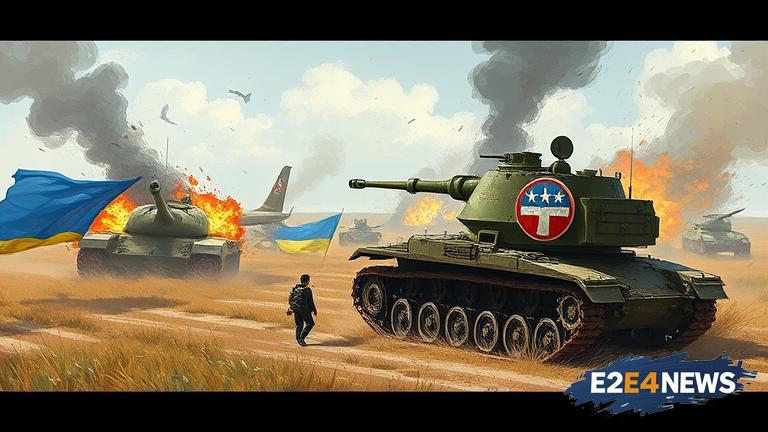The situation in Ukraine has taken a turn for the worse, with a significant escalation of military clashes between Ukrainian government forces and Russian-backed separatists. The conflict has been ongoing since 2014, but recent developments have raised concerns about the potential for a wider war. The Ukrainian military has reported increased attacks by separatist forces, resulting in casualties and damage to infrastructure. In response, the Ukrainian government has launched a series of counterattacks, aiming to retake control of key territories. The international community has expressed concern about the escalation of violence, with the United States, European Union, and other countries calling for a ceasefire and a return to diplomatic negotiations. Despite these efforts, the conflict shows no signs of abating, with both sides dug in and refusing to back down. The humanitarian situation in eastern Ukraine is dire, with thousands of civilians caught in the crossfire and in need of assistance. The United Nations has estimated that over 3 million people have been affected by the conflict, with many forced to flee their homes and seek refuge in other parts of the country. The economic toll of the conflict has also been significant, with Ukraine’s economy suffering greatly due to the loss of trade and investment. The Ukrainian government has accused Russia of providing military support to the separatists, a claim that Russia has denied. However, evidence suggests that Russia has been involved in the conflict, with Russian troops and equipment spotted in eastern Ukraine. The international community has imposed sanctions on Russia in response to its actions in Ukraine, but these have had limited impact. The conflict in Ukraine has also had a significant impact on regional security, with concerns about the potential for a wider war involving other countries. The North Atlantic Treaty Organization (NATO) has increased its military presence in the region, with troops and equipment deployed to countries bordering Ukraine. The European Union has also taken steps to increase its support for Ukraine, including providing financial and military aid. Despite these efforts, the conflict in Ukraine remains a major challenge for the international community, with a solution still elusive. The Ukrainian government has called for increased international support, including more military aid and economic assistance. The conflict has also had a significant impact on Ukraine’s relations with its neighbors, with tensions rising between Ukraine and Russia. The situation in Ukraine is complex and multifaceted, with a range of factors contributing to the conflict. These include historical and cultural differences between Ukraine and Russia, as well as economic and political factors. The conflict has also been fueled by propaganda and disinformation, with both sides accusing each other of spreading false information. The international community has called for a ceasefire and a return to diplomatic negotiations, but a solution to the conflict remains elusive. The situation in Ukraine is likely to remain volatile for the foreseeable future, with the potential for further escalation and violence. The international community must continue to work towards a peaceful resolution to the conflict, including through increased diplomatic efforts and support for Ukraine.





